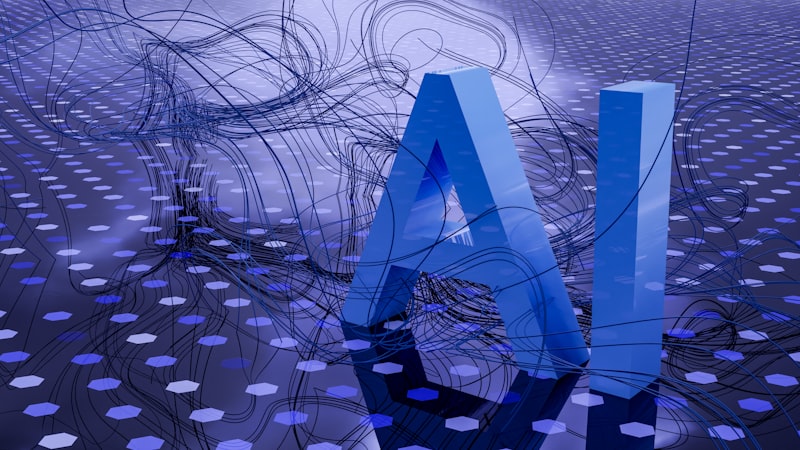The landscape of online education is undergoing a profound transformation, driven by the rapid advancement of artificial intelligence and machine learning technologies. What once seemed like science fiction is now becoming an integral part of how we learn, teach, and engage with educational content in the digital age.
This technological revolution is reshaping every aspect of the learning experience, from how content is delivered to how progress is measured. As we stand at the intersection of education and AI, we're witnessing the emergence of truly personalized, adaptive, and intelligent learning systems that promise to make education more accessible, effective, and engaging than ever before.
The Dawn of Personalized Learning
Traditional online courses often follow a one-size-fits-all approach, delivering the same content to every learner regardless of their individual needs, learning style, or pace. AI is fundamentally changing this paradigm by enabling truly personalized learning experiences that adapt in real-time to each student's unique requirements.
Machine learning algorithms analyze vast amounts of data about how students interact with content, including their reading speed, time spent on different topics, quiz performance, and even patterns in their mistakes. This data feeds into sophisticated models that can predict which concepts a student might struggle with and automatically adjust the curriculum accordingly.
"AI doesn't just deliver content; it understands how each individual learns best and creates a unique educational journey for every student."
Intelligent Content Curation and Recommendations
One of the most visible applications of AI in online education is intelligent content recommendation. Similar to how streaming platforms suggest movies based on your viewing history, educational platforms now use AI to recommend courses, learning materials, and supplementary resources tailored to each learner's goals and interests.
These recommendation engines consider multiple factors including:
- Previous course completion rates and performance
- Career goals and skill gaps identified through assessments
- Learning patterns and preferred content types
- Industry trends and market demand for specific skills
- Peer behavior and success patterns from similar learners
Adaptive Assessment and Feedback
AI-powered assessment tools are revolutionizing how we measure learning progress and provide feedback. Instead of static quizzes with predetermined questions, adaptive assessments adjust their difficulty and focus based on the learner's responses, providing a more accurate picture of their knowledge and skills.
These intelligent systems can provide immediate, detailed feedback that goes beyond simple right or wrong answers. They can identify specific areas where a student needs improvement and suggest targeted resources or exercises to address those gaps.
Natural Language Processing in Education
Natural Language Processing (NLP) is enabling new forms of interaction between students and educational content. AI-powered chatbots and virtual teaching assistants can answer questions, provide explanations, and offer support 24/7, making learning more accessible and reducing barriers to getting help when needed.
Advanced NLP systems can also analyze written assignments, providing feedback on writing style, grammar, and even argument structure. This technology is particularly valuable in language learning, where AI can provide pronunciation feedback and conversational practice through voice recognition and generation.
Challenges and Considerations
While the potential of AI in education is immense, it's important to acknowledge the challenges and ethical considerations that come with this technological advancement. Privacy concerns around student data collection and usage are paramount, as educational AI systems require access to sensitive information about learning behaviors and performance.
There's also the risk of algorithmic bias, where AI systems might inadvertently disadvantage certain groups of learners based on historical data patterns. Educational institutions and technology providers must work together to ensure AI systems are fair, transparent, and inclusive.
The Human Element in AI-Enhanced Learning
Despite the sophisticated capabilities of AI, the human element remains crucial in education. The most successful AI implementations in learning environments are those that enhance rather than replace human instructors and mentors. AI can handle routine tasks, provide initial feedback, and identify areas where students need help, but human educators bring empathy, creativity, and complex problem-solving skills that are essential for meaningful learning experiences.
Looking to the Future
As we look toward the future of AI in online education, we can expect even more sophisticated applications. Virtual and augmented reality powered by AI will create immersive learning environments, while advanced predictive analytics will help identify and prevent student dropout before it happens.
The integration of AI with other emerging technologies like blockchain for credential verification and IoT for hands-on learning experiences will further transform the educational landscape. We're moving toward a future where learning is not just personalized but truly intelligent, anticipating needs and adapting in ways we're only beginning to imagine.
"The future of education lies not in replacing teachers with machines, but in empowering educators and learners with intelligent tools that make learning more effective, engaging, and accessible to all."
The AI revolution in online education represents one of the most significant shifts in how we approach learning and skill development. As these technologies continue to evolve, we must remain focused on their ultimate purpose: creating better learning outcomes and opportunities for students worldwide. The future of education is not just digital—it's intelligent, adaptive, and deeply personal.




